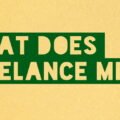Some links on The Justifiable are affiliate links, meaning we may earn a small commission at no extra cost to you. Read full disclaimer.
Are you eager to dive into the world of freelance writing but unsure where to start? Do you wonder how to establish a successful routine or what tools might best support your writing endeavors? In this article, we’ll explore essential tips for freelance writers that will not only enhance your writing skills but also help you manage your freelance lifestyle effectively.
From my experience, embarking on a freelance writing career can be both exhilarating and daunting. However, armed with the right knowledge and tools, you can navigate this landscape more smoothly. We’ll cover daily routines that foster productivity, indispensable tools for your trade, strategies for client management, and much more.
My intention is to provide you with practical advice and insights that are crucial for any aspiring freelance writer. By incorporating these tips into your routine, you’ll be well on your way to building a thriving freelance career.
Table of Contents
Discover the Most Effective Daily Routines for Freelance Writers
Developing a routine that maximizes productivity is crucial for any freelance writer. I believe that starting your day right sets the tone for success. A structured morning can lead to enhanced focus and a smoother workflow.
I recommend establishing a ritual that includes time for planning your day, setting clear objectives, and perhaps even a few moments for meditation or exercise. This can significantly boost your mental clarity and energy levels, making it easier to tackle the tasks ahead.
Moreover, incorporating regular reviews of your progress throughout the day is essential. From my point of view, this not only helps in keeping track of deadlines but also in maintaining a high standard of work. Adjust your schedule as needed based on these reflections to stay on top of your projects without feeling overwhelmed.
Finally, I suggest ending your day with a review of what you’ve accomplished and a brief outline of the next day’s tasks. This can reduce anxiety about impending deadlines and ensure that you have a clear plan of action when you start your work the next day. A consistent end-of-day routine can help in winding down and setting up for a fresh start the following morning.
Starting Your Day with Productivity-Boosting Habits
My advice for freelance writers looking to enhance their morning routine is to start with activities that energize both body and mind. I strongly believe in the power of a morning routine that includes some form of physical exercise, whether it’s a quick jog, yoga, or even stretching. Engaging your body physically increases blood flow, which sharpens mental acuity and readiness for the day.
I also recommend dedicating time to mental preparation. Reading, meditation, or simply planning your day can be incredibly effective. According to numerous studies, mental exercises can increase focus and decrease stress levels, making it easier to maintain productivity throughout the day.
Most importantly, establish a specific workspace that signals to your brain that it’s time to focus. Keeping this area clean and organized can significantly influence your productivity. Personalize your space with items that inspire you, but keep it clutter-free to minimize distractions.
Scheduling Breaks to Maintain High Energy Levels
From my perspective, managing energy levels is as crucial as managing time. I suggest integrating short, scheduled breaks into your daily routine to maintain high productivity levels. These breaks can help reset your mind and prevent burnout. A technique I find particularly useful is the Pomodoro Technique, where you work for 25 minutes and then take a 5-minute break.
Additionally, longer breaks for meals should not just be about eating but also about stepping away from your work environment. This detachment helps in rejuvenating your senses and clearing your mind. I recommend a walk or a brief relaxation session during these breaks to enhance creativity.
I also strongly believe in the benefits of a mid-afternoon power nap or a focused relaxation session. Even a brief 10-15 minutes of shutting your eyes and meditating can boost your cognitive functions and help sustain your energy levels for the remainder of the day.
In my opinion, by managing your energy smartly, you can extend your productive hours without sacrificing quality or well-being. My advice is to listen to your body’s needs and adjust your break schedule accordingly to keep your mind sharp and your writing crisp.
Essential Tools Every Freelance Writer Must Have
For freelance writers, having the right tools is as crucial as having the right words. I recommend that every writer equip themselves with tools that streamline their workflow, enhance their writing quality, and manage their time effectively. High-quality writing software not only aids in crafting polished content but also ensures that you can focus more on creativity and less on the mechanics of writing.
Speaking personally, I think it’s important to invest in tools that offer versatility and efficiency. Tools that integrate easily with other applications can significantly reduce the time spent on administrative tasks, allowing more time for actual writing. From my perspective, a tool’s ability to adapt to different writing styles and formats is also crucial, as freelance work can vary greatly in scope and content.
Moreover, my advice is to choose tools that are reliable and have strong user support. The freelance world is fast-paced, and having dependable tools can mean the difference between meeting or missing a deadline. I suggest looking for tools with positive reviews and robust features that can handle everything from spell checking to citation management.
Must-Have Software for Efficient Writing and Editing
When it comes to writing and editing, the right software can make all the difference. I recommend starting with a word processor that is not only robust and reliable but also has features like version control and cloud storage for easy access across devices. Software like this can help maintain the organization of drafts and final pieces.
From my experience, editing tools are invaluable. I strongly believe in using grammar and style checkers to refine your work before submission. These tools can catch common errors and suggest stylistic improvements, which is crucial in maintaining a professional standard.
Additionally, I couldn’t agree more with the benefits of a good plagiarism checker. For freelance writers, maintaining originality in your work is essential. Plagiarism tools help ensure your content is unique, which protects your reputation and supports your credibility as a writer.
Organizational Tools to Keep Your Projects on Track
Organizational tools are the backbone of successful freelance writing. I am of the view that a good project management tool can revolutionize how you handle assignments, from initial brainstorming to final invoicing. These tools help you keep track of deadlines, client communications, and project progress.
Calendar applications are also critical, in my opinion. They help you visualize your schedule, set reminders for deadlines, and plan your workload accordingly. I suggest integrating your project management tools with your calendar for streamlined scheduling.
I also believe in the power of digital note-taking apps. These can be indispensable for jotting down ideas on the go, storing research, or organizing outlines. With cloud-based options, you can access your notes from any device, which is incredibly useful for freelancers who may work from multiple locations.
Finally, my recommendation for every freelance writer is to adopt a filing system that works for both digital and physical documents. Keeping your contracts, drafts, and invoices organized will save you time and avoid unnecessary stress when you need to find documents quickly.
Strategies to Enhance Your Writing Skills Continuously
Continuous improvement in writing is essential for any freelance writer who aims to stay relevant and competitive. I believe that the key to developing your writing skills lies in a commitment to ongoing education and an openness to constructive feedback. By actively seeking opportunities to learn and grow, you can keep your writing fresh and engaging.
Most importantly, embracing a variety of writing styles and genres can significantly enhance your versatility as a writer. From my perspective, this not only improves your employability but also keeps your daily tasks interesting and diverse. Experimenting with new writing forms can provide valuable skills and insights that are applicable across various types of projects.
Additionally, I recommend maintaining a regular practice routine. Writing regularly, even outside of client projects, helps to refine your skills and increase your speed and efficiency. Setting personal challenges, such as writing a certain number of words daily or submitting work to literary journals, can provide practical targets that foster growth and improve your writing stamina.
Regular Training and Courses to Sharpen Your Writing
Investing in regular training and courses is a strategy I strongly advocate for any freelance writer looking to excel. These educational opportunities provide not only the latest writing techniques but also insights into the ever-evolving landscape of digital content creation. I suggest looking for courses that cover a range of topics, from creative writing to technical aspects like SEO.
Workshops and webinars are also invaluable resources. According to industry experts, participating in these settings can enhance your understanding of reader engagement and digital marketing strategies. This knowledge is crucial for producing content that not only reads well but also performs well in search engines.
Moreover, I recommend courses that offer certification. These can bolster your resume and reassure potential clients of your commitment to quality and continual learning. My advice is to choose reputable sources for your education to ensure that the time and money invested contribute positively to your career.
The Role of Feedback in Refining Your Writing Style
Feedback is a fundamental tool for any writer who aims to improve. I am of the view that constructive criticism, whether from clients, peers, or mentors, is invaluable. It provides perspectives that you might overlook and can point out habitual errors, helping you to refine your style and approach.
Engaging with a writing group or finding a writing partner can be particularly beneficial. From my experience, regular exchange of ideas and critiques with fellow writers encourages growth and fosters a supportive community. This network can be a source of motivation and inspiration, which are crucial in a field as solitary as freelance writing.
I also suggest using client feedback to tailor your writing style to different audiences. Understanding the preferences and feedback of your clients can guide how you approach assignments, making your work more appealing to those you write for.
My recommendation is to view each piece of feedback as a stepping stone towards mastering your craft, enhancing both your flexibility and your marketability as a writer.
How to Build and Maintain a Strong Client Base
Building and maintaining a strong client base is essential for the sustainability of any freelance writing career. I believe that success in this area depends largely on your ability to network effectively and communicate professionally. Establishing trust and a reputation for reliable, high-quality work will encourage repeat business and referrals, which are the lifeblood of freelancing.
From my perspective, understanding your clients’ needs and consistently meeting or exceeding their expectations is key to retention. It’s not just about delivering great content; it’s also about how you manage the relationship. Adopt a proactive approach by regularly checking in with clients, updating them on progress, and demonstrating that you value their business.
Moreover, my advice to any freelance writer is to always be on the lookout for new opportunities. While it’s important to maintain existing client relationships, diversifying your client base can help buffer against the ebb and flow of freelance work. Attend industry events, participate in online forums, and use social media to your advantage to connect with potential clients.
Networking Tips for Freelance Writers to Find New Clients
Networking is a critical skill for freelancers. I recommend starting by leveraging your existing contacts. Speaking personally, reaching out to former colleagues, classmates, and even friends can open doors to new opportunities. It’s not just who you know; it’s who your contacts know that can often help you.
Additionally, joining professional associations and attending industry conferences can be incredibly beneficial. Here’s how you can start: select events that align with your niche in writing, as this will increase the chances of meeting potential clients who need your specific skills. I suggest being prepared with a polished elevator pitch that succinctly describes what you do and what sets you apart from other writers.
I strongly believe in the power of online networking as well. Platforms like LinkedIn are invaluable for connecting with industry professionals. Customize your invitations to connect with a personal note and make it relevant to the recipient to increase the likelihood of a positive response. My impression is that being genuinely interested in what others do and finding ways to help them can foster relationships that may lead to client work.
Best Practices for Client Communication and Retention
Effective communication is crucial for client retention. I recommend setting clear expectations from the outset and keeping the lines of communication open throughout the duration of each project. Regular updates and transparency about any challenges that arise can build trust and reduce misunderstandings.
In my opinion, responsiveness is also critical. Responding promptly to client inquiries and feedback shows that you value their time and business. It also helps in building a professional image that can encourage ongoing collaboration.
Additionally, my advice is to ask for feedback after completing a project. This not only demonstrates your commitment to quality and client satisfaction but also provides insights that can help you improve your services. According to best practices, constructive feedback should be welcomed and used as a tool for professional growth.
Lastly, I would say that showing appreciation can go a long way in maintaining a strong client relationship. Simple gestures like thanking a client for their business or sending a brief note on the anniversary of your collaboration can make a significant impact. My intention is to make each client feel valued and respected, which I believe fosters loyalty and long-term partnerships.
Financial Management Tips for Sustaining Your Freelance Career
Effective financial management is crucial for sustaining a successful freelance career. My recommendation for every freelancer is to develop a solid understanding of financial basics and to implement systems that help in tracking income and expenses. This ensures you’re not only compliant with tax laws but also in control of your financial health.
From my perspective, maintaining a separate bank account for your business transactions is essential. This simplifies the process of financial tracking and makes it easier to see the real-time state of your earnings and expenditures. It’s also beneficial for maintaining professionalism with clients and vendors.
Moreover, I strongly believe in the importance of creating a budget. Budgeting helps you forecast and plan for both regular and irregular expenses. It enables you to make informed decisions about rates, investments in tools and education, and savings for future goals. I suggest using budgeting software tailored to freelancers to streamline this process and provide valuable insights into your financial trends.
Budgeting Basics to Keep Your Finances in Order
I think one of the first steps in effective financial management is understanding your income patterns. For freelancers, income can be irregular, so it’s crucial to establish a clear picture of what you typically earn each month. From my experience, tracking all sources of income helps in creating a realistic budget.
Once you have a grasp on your income, my advice is to categorize your expenses. I recommend separating fixed expenses like internet and phone bills from variable expenses such as advertising or supplies. This distinction is vital for identifying areas where you can cut costs or need to allocate more funds.
I also suggest setting aside a portion of each payment you receive for savings and emergency funds. According to financial advisors, having at least three to six months of living expenses saved can provide a cushion that makes managing freelance income fluctuations much easier.
Planning for Taxes and Unexpected Expenses as a Freelancer
When it comes to taxes, I couldn’t agree more with the advice to plan ahead. As freelancers, we are responsible for our own tax obligations, including self-employment tax and quarterly estimated taxes. I am of the view that setting aside a percentage of each payment specifically for taxes is essential to avoid surprises during tax season.
My recommendation is to consult with a tax professional who understands freelance specifics. This can help ensure you’re not only compliant but also taking advantage of any applicable deductions. Speaking personally, using a professional has saved me both money and stress.
Furthermore, I advise preparing for unexpected expenses by maintaining a designated emergency fund. From my point of view, unforeseen costs such as equipment repairs or sudden medical expenses can disrupt your financial stability if you’re not prepared.
Lastly, my suggestion is to review and adjust your financial plan regularly. As your freelance business evolves, so will your financial needs. Regular reviews can help you stay on track and make necessary adjustments to your budgeting and tax planning strategies, ensuring financial security and sustainability in your freelance career.
Balancing Work and Life as a Freelancer
Balancing work and life is a perennial challenge for freelancers, but it’s crucial for sustaining both personal well-being and professional productivity. From my point of view, achieving this balance requires deliberate planning and the implementation of effective strategies to manage time and set boundaries. The ability to separate work from personal life not only enhances job satisfaction but also prevents burnout.
My suggestion for freelancers is to clearly define work hours. This helps in creating a routine that both you and your clients can rely on, thereby setting expectations. It’s also essential to be disciplined about starting and ending work at these times to prevent work from bleeding into your personal life.
Moreover, I strongly believe in the power of regular breaks and vacations. Taking time off not only rejuvenates your spirit but also refreshes your mind, leading to more creativity and productivity in the long run. I recommend planning at least one extended break each year and shorter breaks throughout the year to maintain a healthy work-life balance.
Techniques for Effective Time Management
Effective time management is crucial for freelancers who juggle multiple clients and projects. I would say that the first step is to prioritize tasks daily. Using tools like digital planners or apps can help manage your tasks and deadlines more efficiently. Assigning specific time blocks to each task can also prevent the day from becoming a jumble of activities that might lead to stress and underperformance.
Another technique I recommend is the use of productivity methods like the Pomodoro Technique, which involves working in focused bursts followed by short breaks. This can help maintain high levels of concentration and prevent fatigue.
Furthermore, I think it’s important to review your productivity at the end of each day. This reflection can help you understand what tasks consume more time than anticipated and adjust your planning accordingly. I suggest using this insight to better estimate task durations in the future, enhancing your time management skills.
Importance of Setting Boundaries Between Work and Personal Life
Setting boundaries is essential for maintaining a healthy balance between work and personal life. I am of the mind that clear communication of your working hours to clients and sticking to these hours strictly can significantly help in setting these boundaries. It sends a message about your professionalism and respect for your own time.
In my opinion, having a dedicated workspace is also vital. This physical separation helps in mentally distinguishing between ‘work mode’ and ‘home mode.’ My advice is to make this space exclusive to work-related activities, which can help your brain associate it with professional tasks only.
Additionally, I recommend setting rules with family and friends regarding interruptions during work hours. According to many successful freelancers, understanding from loved ones about your work commitments is crucial. It helps in minimizing distractions, allowing you to focus better during work time.
Lastly, I strongly believe in the importance of unplugging after work hours. Avoid checking emails or taking client calls outside of agreed times. This discipline helps in maintaining the sanctity of your personal time, allowing you to fully engage with your life outside of work, which is essential for long-term career sustainability and personal happiness.
Staying Updated with Industry Trends and Opportunities
For freelance writers, staying updated with the latest industry trends and opportunities is not just beneficial—it’s essential. In my opinion, having a deep understanding of the market dynamics can significantly enhance your competitiveness and ability to capture new opportunities. As the industry evolves, so should your knowledge and strategies.
From my perspective, subscribing to industry newsletters is a great start. These can provide a steady stream of updates and insights directly to your inbox, making it easier to stay informed even during busy periods. I recommend choosing newsletters that not only cover broad trends but also specific niches relevant to your specialties.
Furthermore, I think attending webinars and online conferences is invaluable. These platforms offer not only learning opportunities but also networking possibilities that can lead to new projects and collaborations. They often feature experts discussing the latest challenges and innovations in the industry, which can inspire new approaches in your own work.
Lastly, I strongly believe in the power of continuous professional development. Participating in training sessions and courses can sharpen your skills and ensure your offerings remain relevant and attractive to clients. Regularly updating your skills can help you adapt to changing market demands and maintain a competitive edge.
Resources to Keep You Informed About Writing Markets
Keeping well-informed about writing markets requires utilizing a variety of resources. My first suggestion is to follow industry blogs and websites. These are often a treasure trove of current information and can offer insights into both the demand for different types of writing and the emerging best practices in content creation.
I also recommend joining professional writing associations. According to many seasoned freelancers, these organizations provide not only networking opportunities but also access to exclusive research and reports on market trends. They can be particularly useful for understanding broader industry shifts and preparing for future changes.
Social media groups dedicated to writers can also be incredibly beneficial. I believe these forums allow for real-time interaction with peers and experts, which can lead to immediate and actionable insights. Here’s how you can start: join groups with active participation and regular updates, and engage with content that aligns with your professional interests.
Lastly, my advice is to leverage analytics tools available on many freelance platforms. These tools can offer data-driven insights into what kinds of writing are growing in demand, which can guide your learning and business strategies.
Leveraging Trends to Propel Your Freelance Career Forward
To effectively leverage industry trends, it’s important to first identify which trends align with your skills and interests. I suggest conducting regular reviews of your business strategy to assess how emerging trends can be integrated into your service offerings. This proactive approach can help you stay ahead of the curve and offer services that clients don’t even know they need yet.
From my point of view, adapting your marketing strategy to highlight your knowledge and skills in emerging areas can attract clients looking for cutting-edge content. I recommend updating your portfolio regularly to include samples that reflect your proficiency in trending topics or styles.
Furthermore, I assume that by writing about trends on your blog or social media, you can establish yourself as a thought leader in specific areas. This not only enhances your visibility but also demonstrates your expertise to prospective clients.
Lastly, my intention is to encourage freelance writers to experiment with new formats and mediums. Whether it’s interactive content, video scripts, or content for new digital platforms, diversifying your capabilities can open up numerous doors and lead to exciting new projects. I am of the view that flexibility and adaptability are key traits that clients value in freelancers, and these qualities can significantly boost your freelance career.
I’m Juxhin, the voice behind The Justifiable.
I’ve spent 6+ years building blogs, managing affiliate campaigns, and testing the messy world of online business. Here, I cut the fluff and share the strategies that actually move the needle — so you can build income that’s sustainable, not speculative.









